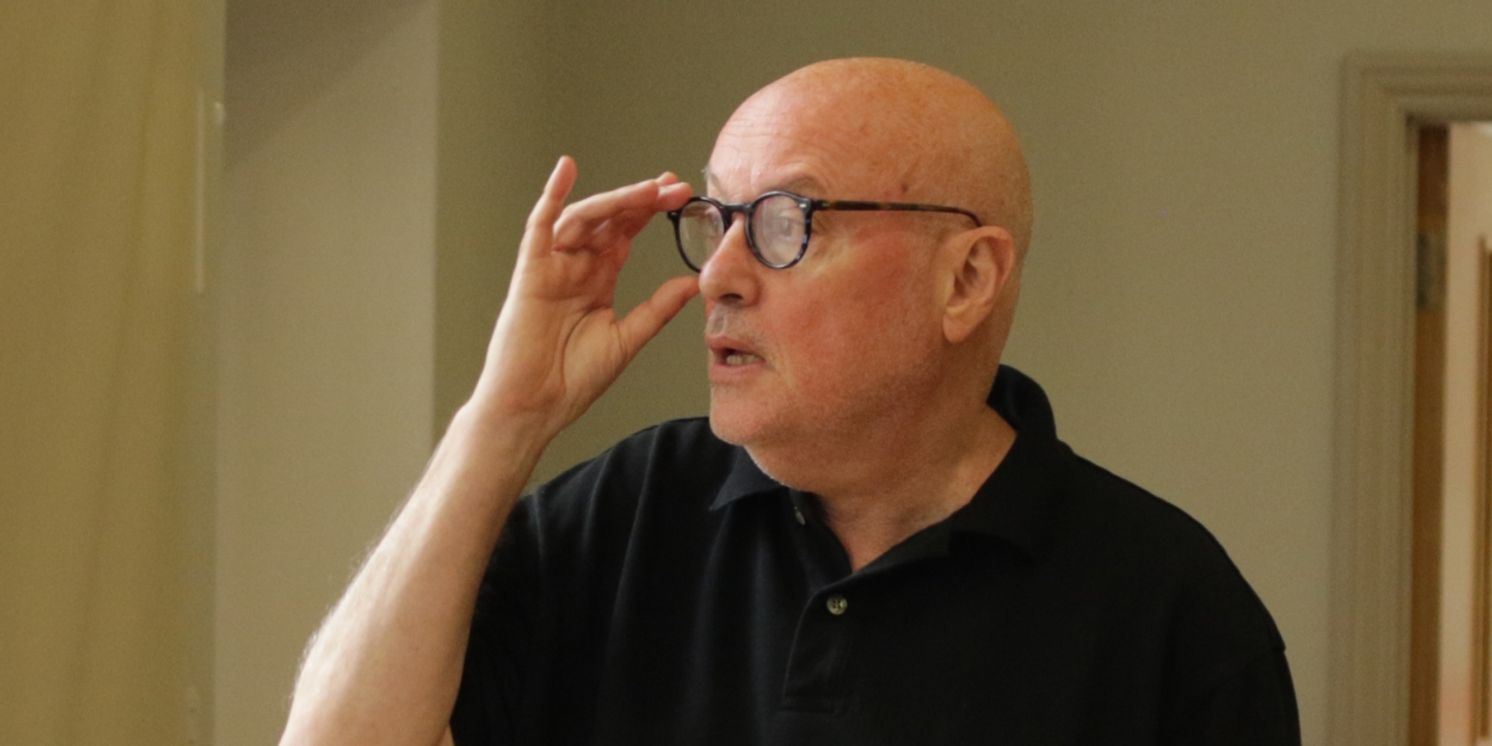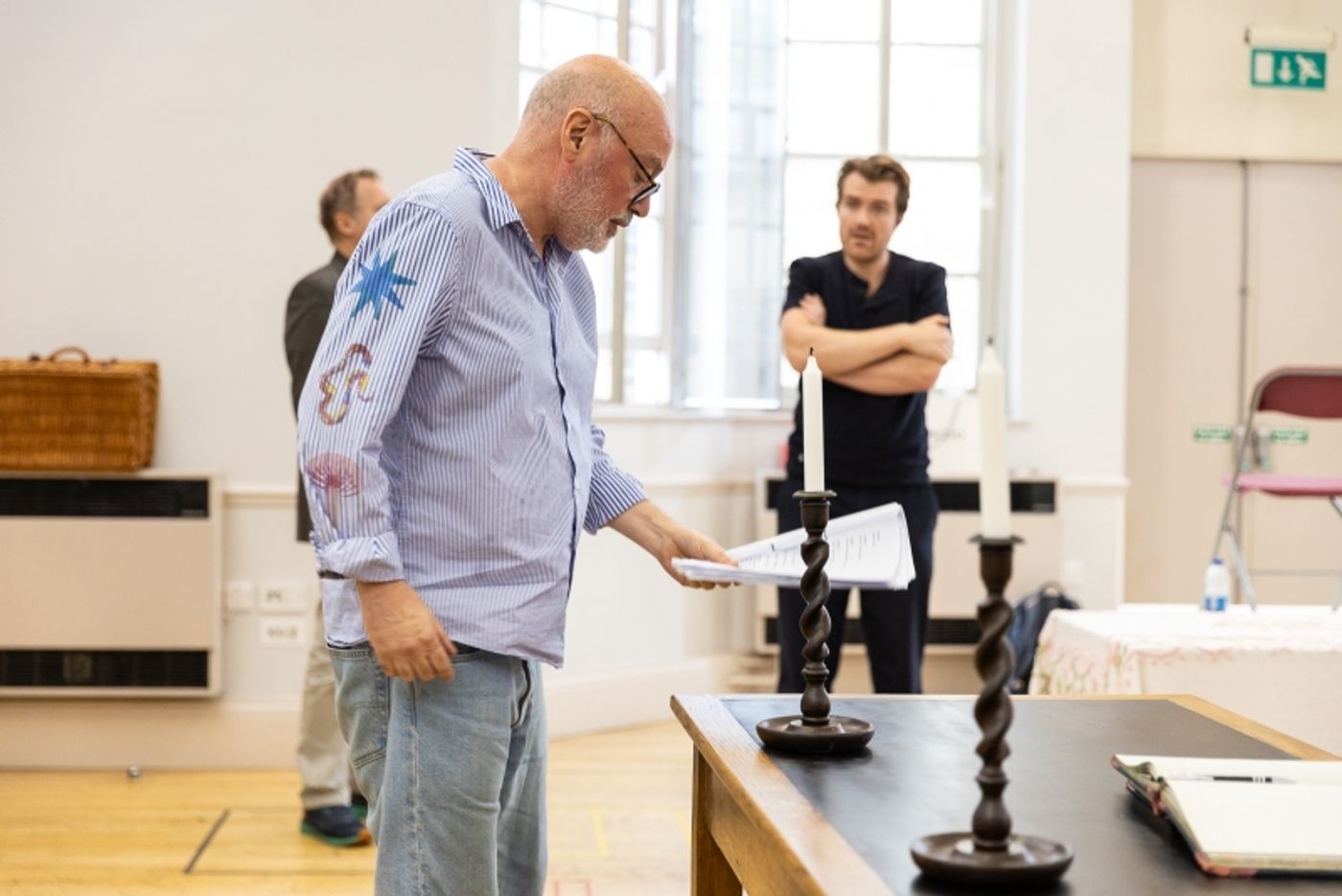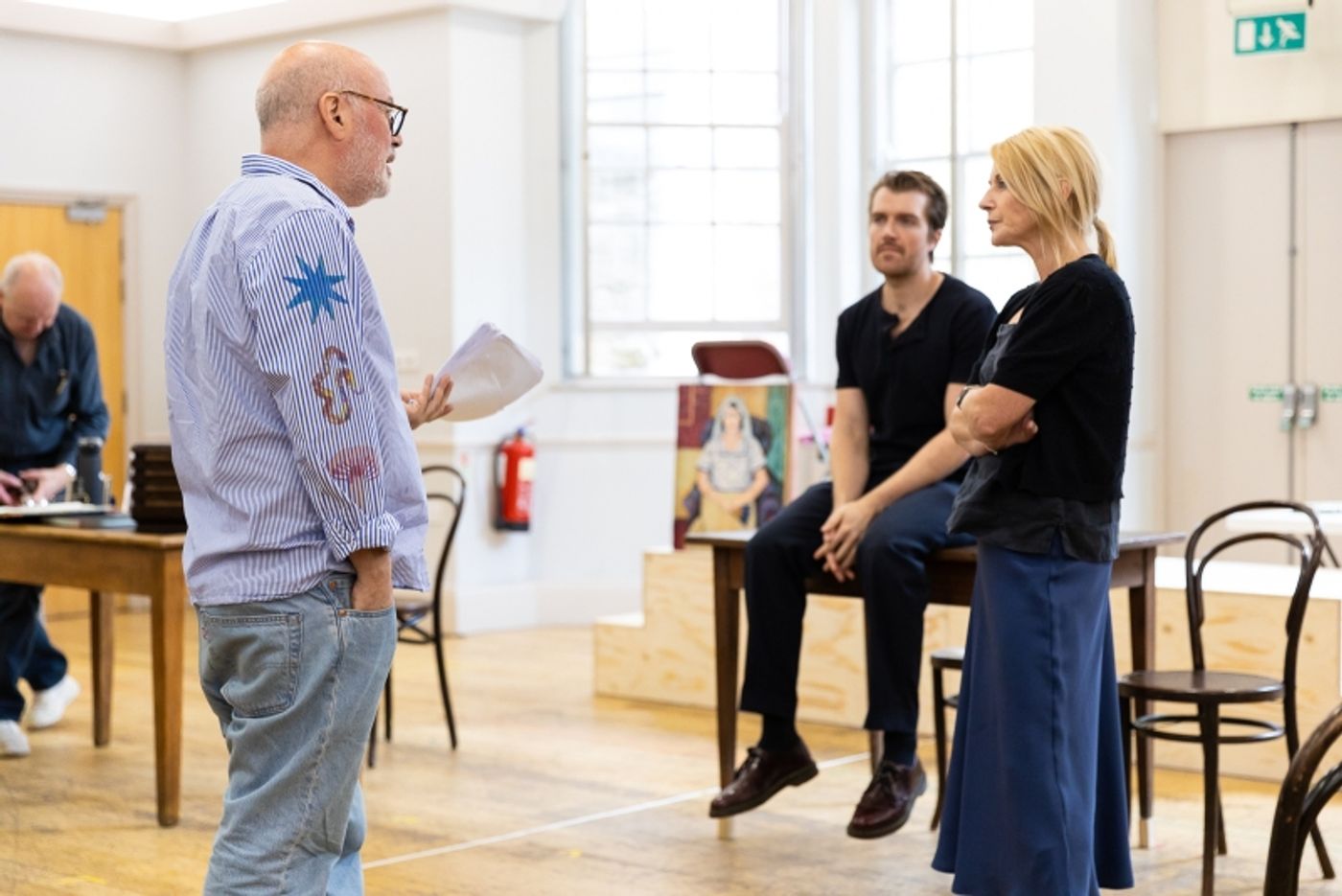Guest Blog: 'It Is My Job To Focus the Eyes of the Audience': Director Lindsay Posner on Preparation, Balance and Unusual Structure in FAREWELL MISTER HAFFMANN
'The dictum ‘through repetition comes freedom’ has certainly been applicable to this rehearsal process! '

At a time when far-right movements are undergoing a resurgence across Europe and beyond- even with the possibility of a future US president governing from a prison cell, it feels timely to be directing Farewell Mr Haffmann by Jean-Phillipe-Daguerre; a play about the persecution of Jews in Nazi occupied Paris.
As well as being an exploration of the moral dilemmas involved in collaboration, the play is also about a married couple unable to have children. At times it feels as though the playwright’s real interest lies with Isabelle and her sterile husband Pierre, rather than with their Jewish employer, Joseph Haffmann who they have agreed to hide from the Nazis in a cellar.
It is my job as director to give both stories equal dramatic weight, emphasising both the personal and the political. The audience needs to be always aware of the constant danger Joseph is in, as well as his two employees for protecting him. I will be using sound effects of stormtroopers running, gunshots, sirens, children crying and the use of Nazi songs during scene changes.
The play is unusual structurally, in that the first half is made up of 31 short scenes, and the second half is virtually just one long scene. The first half scenes are written as snapshots, often at crisis moments in the characters’ lives, requiring performances of high emotional intensity. I have been working with the actors on a detailed process of psychological preparation so that they can turn on a sixpence and deliver each snapshot scene with truth and often at a high emotional temperature.

Nigel Lindsay and Ciaran Owens
Photo Credit: Shona Louise
The first week of rehearsals involved sitting around a table with the actors and examining every line and stage direction both to unravel psychological meaning and intention, and to discuss historical context and character background. A forensic search light was pointed at the script to discover both its strengths and flaws, and sometimes to make amendments to the translation where necessary. As with all translations from foreign languages into English, one cannot tell how well it works until the actor has spoken it aloud.
Once rehearsing on the floor, a stylised language had to be established for the physical scene- changes so that the show moves fluidly and smoothly from scene to scene and does not seem clunky or fragmented. We have a minimal set design and keep the use of props to the bare essentials. I have been rehearsing the scenes in detail in threes and fours, getting the actors to repeatedly run the sections several times so that they would become familiar with the physical rhythm and the sudden ‘jump cuts’ in the story. The dictum ‘through repetition comes freedom’ has certainly been applicable to this rehearsal process!

Photo Credit: Shona Louise
The second half of the play is an extended dinner party scene and demands a very different approach with different challenges. I'm currently working painstakingly with the actors to achieve a naturalness of dinner-party conversation, whilst choreographing and orchestrating the serving and consumption of a real dinner with wine and champagne.
One must be careful that physical business does not muddy the complex tensions taking place on stage, as the audience witnesses a Jewish man and a Nazi ambassador eating at the same table. It is my job as a director to focus the eyes of the audience on key moments in the text, making sure the actor lands particular lines with the right weight and emphasis.
We have just finished week three of rehearsal and won't be running the play in its entirety until the very end of week four. We are beginning to see light at the end of the tunnel and look forward to performing the play in front of an audience. If people are in turns disturbed, challenged, and deeply moved by the production, we will have done justice to Jean-Phillippe-Daguerre’s compelling play. Here's hoping!
Farewell Mr Haffmann is at the Ustinov Studio, Theatre Royal Bath from 24 August - 23 September
Videos

